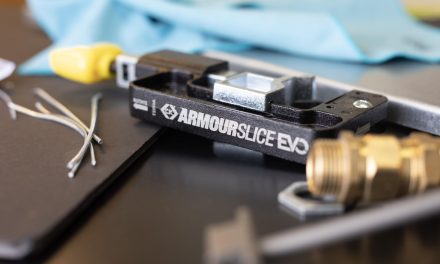 Having a maintenance agreement in place will ensure optimal performance of your uninterruptible power supply but between those visits what can you be doing to ensure you are getting the best out of your UPS.
Having a maintenance agreement in place will ensure optimal performance of your uninterruptible power supply but between those visits what can you be doing to ensure you are getting the best out of your UPS.
If you are part of a business planning to invest in an uninterruptible power supply (UPS) system, you will most likely be looking towards key factors such as reliability, cost, and performance to ensure that your business continues to run smoothly. However, you should consider whether the conditions are stable enough to allow your UPS to perform optimally and have a long lifespan. That in mind let us explore what environmental factors you should consider and the steps you can take to protect your investment.
Extremes of temperatures
The most common cause of battery degradation is the extremes of temperatures. Changes can cause the electrochemical reaction in the battery to quicken and drastically shorten the battery lifespan which ultimately will affect the back-up time.
Most UPS systems can tolerate a wide temperature fluctuation of between 0-40°C however the battery has a recommended operating temperature of around 20°C and 25°C. Check the manufacturer’s information for guidance.
Humidity
The main problem with high humidity levels is the corrosion it can cause. This degrades the internal components and could potentially pose a fire risk.
Most manufacturers will recommend optimal humidity levels for the UPS system to operate (generally 90/95 not condensing). Always use common sense and avoid installing the system near an open window or in areas known for high humidity levels.
Ventilation
To ensure that the UPS system can operate at peak levels, it’s also essential that the machine is positioned in a clean environment with adequate ventilation and cooling equipment, where needed.
This will keep the system working at optimum performance and prevent corrosive particles from entering the system and causing overheating.
If you are using a UPS system in an environment where water or dust ingress could be a problem higher IP rating for the UPS can be arranged with the manufacturer.
 Air quality
Air quality
If your business is located in a coastal area, you should exercise extra caution.
The high levels of salt in the air can enter the system and crystallise on the delicate circuit boards. It can also cause corrosion and again, shorten the lifespan of the device.
How to protect your UPS system from environmental damage?
Considering the above factors, there are several ways in which you protect your UPS system and ensure you gain maximum benefit from it.
These include the following:
1. Assess the environment
Before you install your new uninterruptible power supply, carefully assess the intended location. Choose somewhere with a relatively stable environment and ask your UPS supplier for recommendations, as there highly skilled sales and project teams have the knowledge and experience.
Warehouses are prone to dust; server rooms can become hot therefore air conditioning units could be advisable. If the UPS is situated in an unrestricted area, ensure people are respectful of the equipment and that they are not misused and shouldn’t be used as foot rests, or filing cabinets.
2. Maintenance
Ensure you are having at least two service visits per year to help remove dust or other build-up and monitor the UPS system. This will help identify and remedy any minor issues early before they become problems. Recently Constant Power Services Ltd on a routine maintenance visit discovered a failed air conditioning unit in a server room, which meant the ambient temperature was 34 degrees Celsius. If this had not been picked up this could have led to thermal runaway and a catastrophic battery failure.
 3. Monitor the UPS alarm
3. Monitor the UPS alarm
Your UPS should have the facility for alarms which can be linked to BMS systems and with the option to notify external staff of problems should they arise. If you have a battery monitoring system such as BACS offered by Constant Power Services Ltd this too will advise of potential problems.
4. Training
Training is an essential part of UPS management and ensures operatives become familiar with the functions of the UPS and the possible alarms. Constant Power Services Ltd can offer training on Riello equipment.
If you are unsure always refer to your UPS service provider.
Constant Power Services advise that as well as undergoing routine maintenance visits by an authorised UPS company, the following 8-point check should be carried out by site operatives as a matter of routine.
1 UPS / Battery Room Temperature is around 20-22°C
2 No smell of Sulphur / Rotten Eggs (Likely battery fault, report this immediately if this smell is present).
3 Visually Inspect batteries (if possible) for signs of case deformation/traces of leaking acid/terminal corrosion
4 No water/liquid near the UPS system
5 UPS LCD Panel is operating correctly
6 No Alarms are displayed on the UPS or no audible alarms are present (Ideally check history for any irregular alarms)
7 Check all fans are operating (if not temperature controlled) and do not sound noisy
8. Check nothing is obstructing the fans



